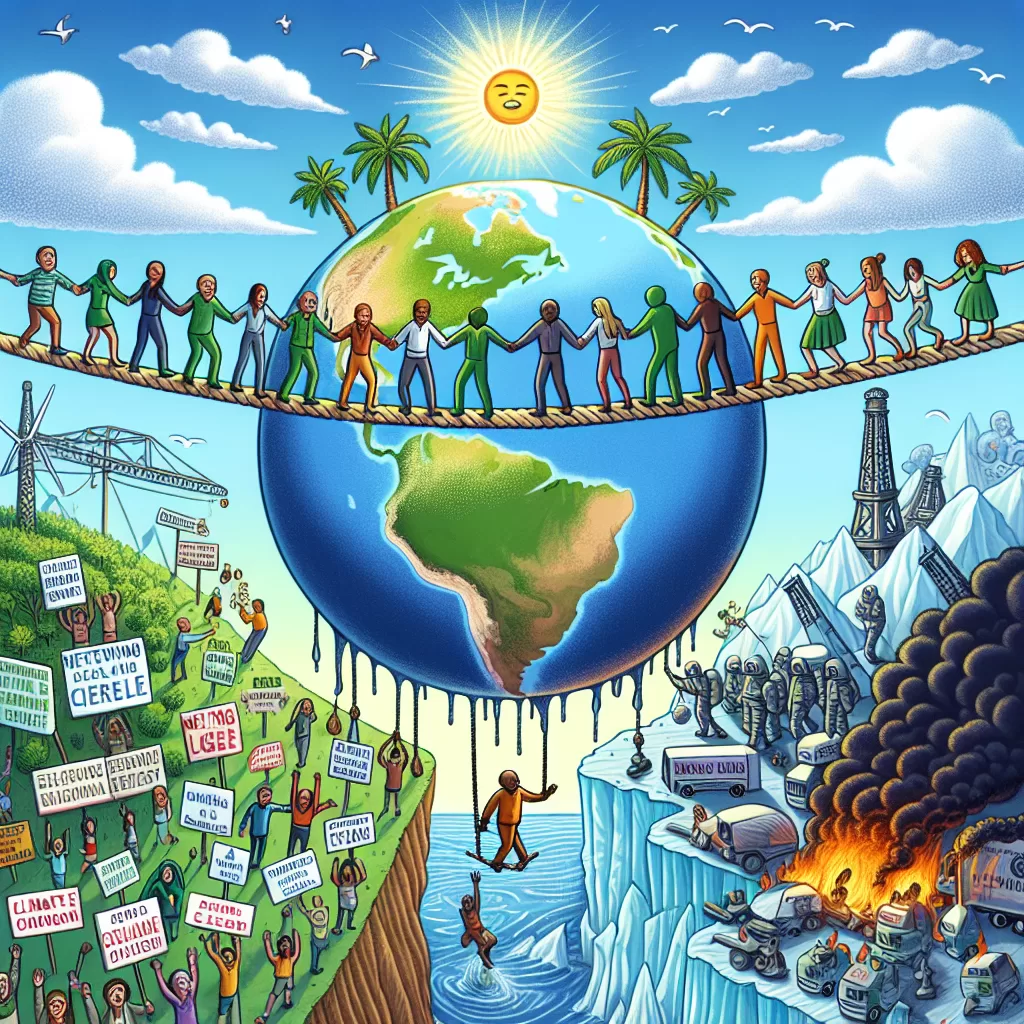Economic consequences of climate inaction pose severe threats to peace. When communities lose livelihoods, social unrest can follow. Economic hardship opens doors for far-right forces to stoke xenophobia and racism. Governments neglecting climate action now increase the likelihood of future instability.
The Alarming Trend
An alarming trend sees global leaders backtracking on climate action, driven by a misinformed narrative that net-zero transitions harm economies. Recent reports, however, show the net-zero industry as an economic driver. Ignoring climate action now will saddle societies with significant financial and human costs.
The latest IPCC reports confirm climate impacts already drive poverty, hunger, and displacement in vulnerable communities. Unless emissions reduce and adaptation accelerates, these inequalities will deepen, with consequences for all. Concerningly, some countries cut aid budgets to fund defense, undermining the delicate balance between the Global North and South.
Climate Justice: A Pathway to Peace
At COP26, Scotland became the first nation to commit finance for loss and damage, referring to Global North payments to the Global South for irreversible climate impacts. This act of reparation, not charity, is crucial for climate justice.
Stepping back from loss and damage would gravely undermine peace. Failing to address irreversible impacts will drive more global conflict. If the Global North breaks promises, the Global South’s skepticism about the COP process will only grow.
Acting on climate injustice is fundamental to any vision of a peaceful world. Climate action is a justice issue, as the poorest countries contributed least yet bear the brunt. This moral failure is also a geopolitical risk. The Global South cannot be expected to cooperate in a system repeatedly ignoring their needs and priorities.
The post-war principle of multilateralism must be defended. When powerful countries sideline the ‘one country, one vote’ approach, they signal might makes right – an approach breeding more conflict.
At COP30 in Brazil, the future of global climate cooperation – indeed, of the UN process itself – is at stake. Leaders must recognize climate justice on mitigation, adaptation, and loss and damage as essential for peace. Pandering to strongman egos will only deepen injustice and instability.
For future generations, today’s leaders must stand for justice and secure a future built on the common good. With political will, COP30 can reinforce the norms and values necessary for peace. Bequeathing a healthy, peaceful planet demands it be so.

